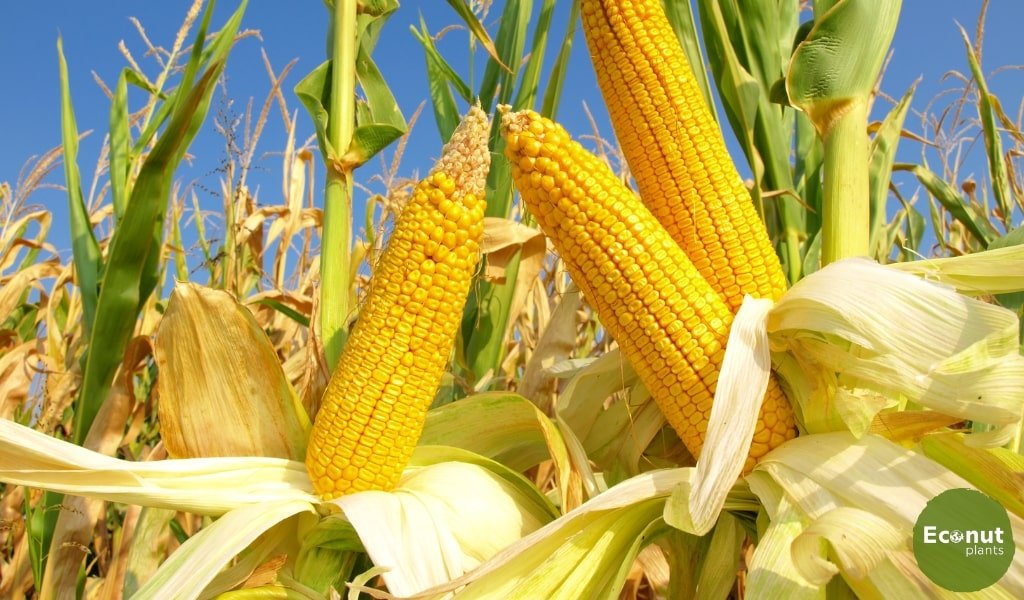Corn, or maize, is one of the most versatile and widely cultivated cereal grains in the world. Its adaptability to different climates and soil conditions has led to the development of numerous varieties tailored for various purposes, from human consumption to industrial uses. Let’s delve into the diverse world of corn and explore some of its most prominent types and varieties.
1. Dent Corn
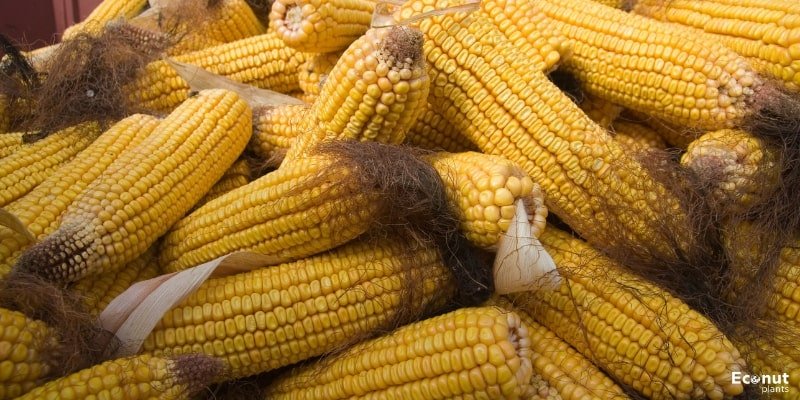
The dimple in the middle of the corn kernel gives rise to the name of this variety of maize. About 99% of maize is grown there, making it the most popular kind in the United States.
In addition to producing corn syrup, this variety of maize is fed to cattle. In industrial goods like ethanol for fuel, drinks, and sanitizers, it is also utilized.
Dent corn may be utilized in many environmentally friendly methods and is the most efficient raw material due to its high starch content.
2. Sweet Corn
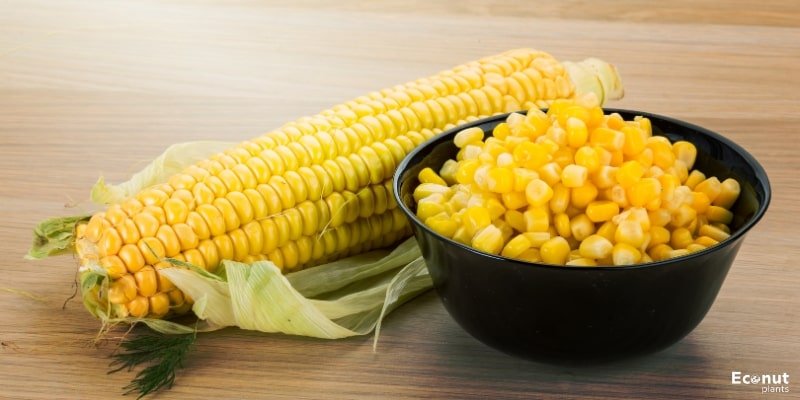
Also called “corn on the cob.” This variety of corn is commonly served at summer barbecues, and it pairs well with burgers on sweltering summer days. You can freeze or can this kind of corn for later use. Once the sweet corn is harvested,
Consumed when the corn is still developing and in the milk stage, when the kernels are still soft. Sweet corn has higher sugar content than other types of corn.
3. Popcorn
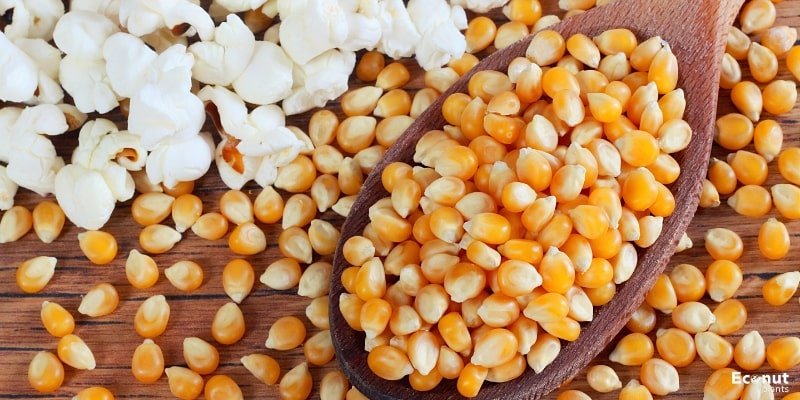
Although popcorn is a variety of flint corn, it differs in size, shape, moisture content, and starch content. Its mushy, starchy interior is surrounded by a firm outer shell.
The inherent moisture in the kernel turns to steam when heated, and finally the pressure inside the kernel explodes. Popcorn has a distinct flavour and pops easily when heated, unlike other dried corn varieties.
4. Flour Corn
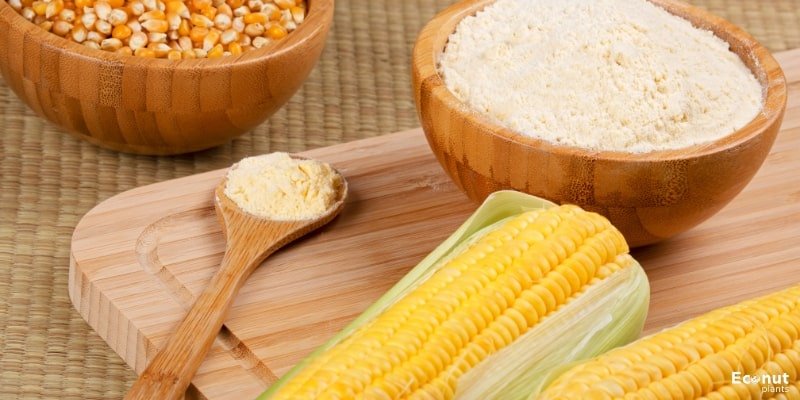
One of the oldest types of corn is flour corn. Its soft kernels, which are composed primarily of starch and are therefore very easy to crush, are utilized in many other products we eat as well as baked items.
5. Pod Corn
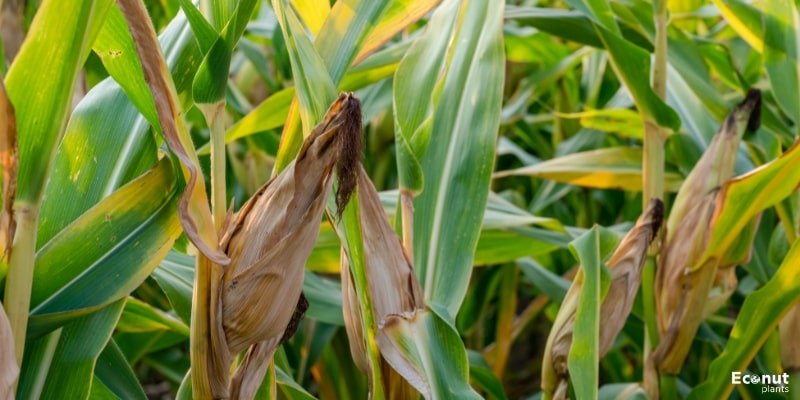
The glumes, which are long, membrane-covered husks, envelop each individual kernel in this type of corn. When corn is roasted, the kernels are bare or visible. In the maize cob used in this variation, a leaf gene that is normally dormant in this section of the plant has undergone mutation.
Consequently, a corn ear that develops leaves in the “wrong” location is known as pod corn. When pod corn was shown to be the product of a genetic mutation, the conventional wisdom regarding pod corn’s wild ancestor as maize was replaced.
It is rarely consumed, but it is another illustration of the remarkable diversity found in corn because it is challenging to find each unique kernel.
6. Waxy Corn
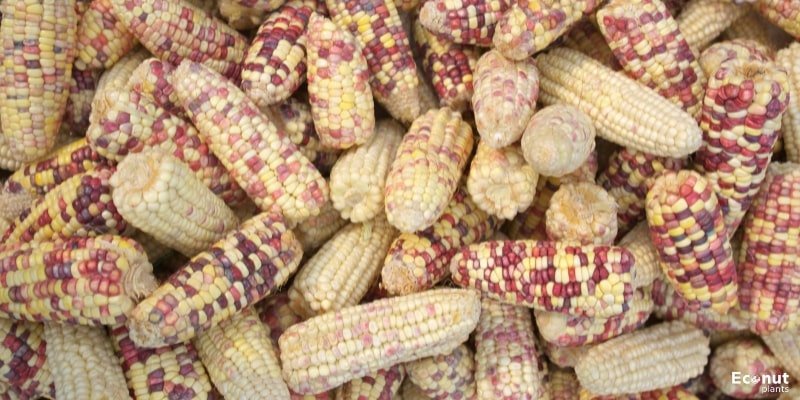
The high amylopectin content of waxy maize gives it a sticky, waxy feel when cooked. The main uses for this kind of maize are in industrial applications like adhesives, thickening agents, and specialty culinary items. Because of its distinct starch content, it works especially well in several recipes that call for a gummy consistency.
7. Blue Corn
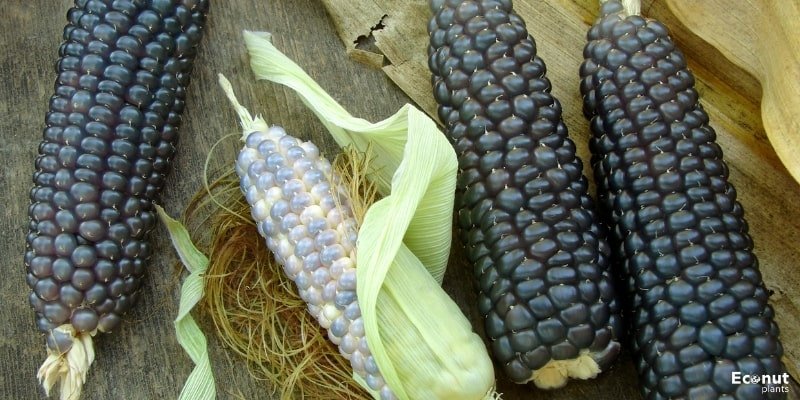
Grown mostly in Mexico and the southwestern regions of the United States, blue corn is a variety of maize with a blue or purple tint. Its mildly nutty flavour makes it a popular ingredient in many food products, such as tortillas, chips, and bread.
8. Peruvian Corn
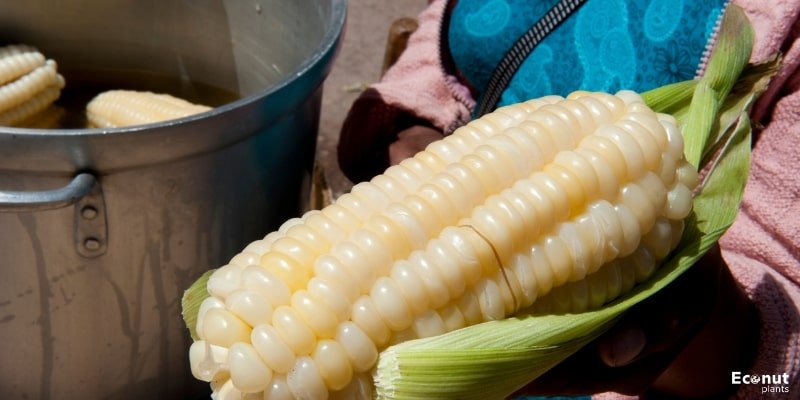
Peruvian corn originates in the Andes and is a large-kernel field corn type, also called choclo or Cuzco corn. It belongs to the grass family and can reach a height of six meters. The leaves of this plant wrap around the stem. The grains that people eat are found in the cobs.
9. Bicolour Corn
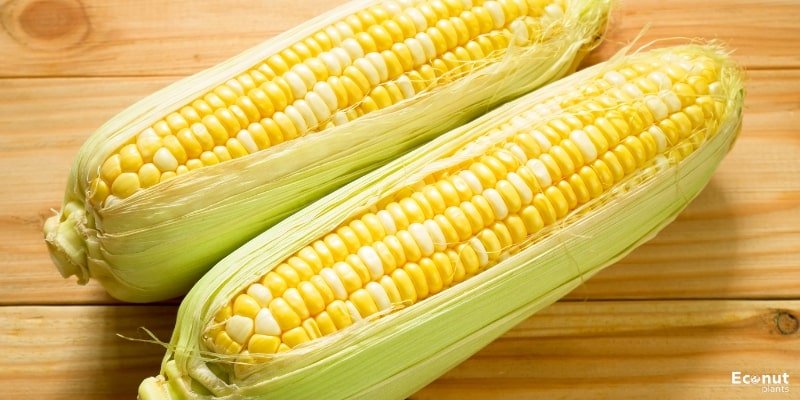
The fine, cylindrical ears of bicolour maize are adorned with alternating white and yellow kernels. Husks stick closely to the cobs, and their plump kernels can taste like citrus, butter, and cream.
10. White Corn
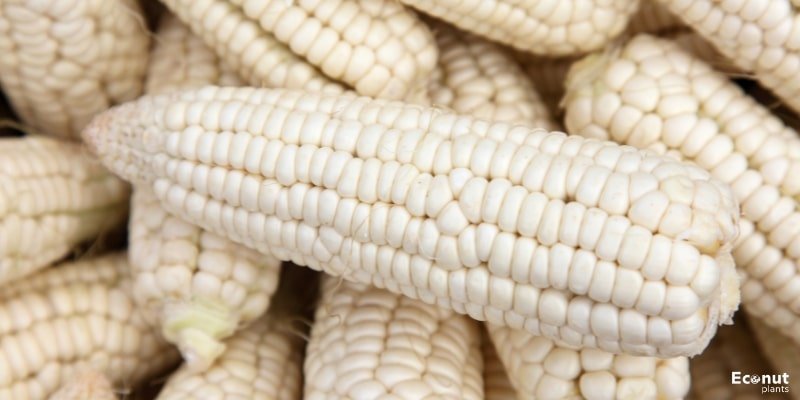
One of the most significant cultural plants for Iroquoian peoples, such as those of the Meherrin Nation in North Carolina, is white corn. White corn is not just a sacred plant but also a significant food.
11. Painted Mountain Corn
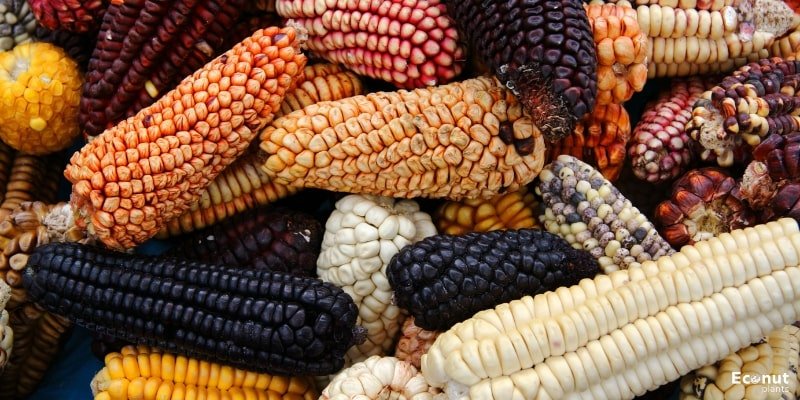
This high-altitude corn variety, which is grown in the Rocky Mountains, was developed in Montana during the 1970s with a focus on its exceptional resistance to cold. Corn cobs come in a variety of colours, such as yellow, red, and orange, and are utilized to manufacture grits, flour, and cornmeal.
12. High-Oil Corn
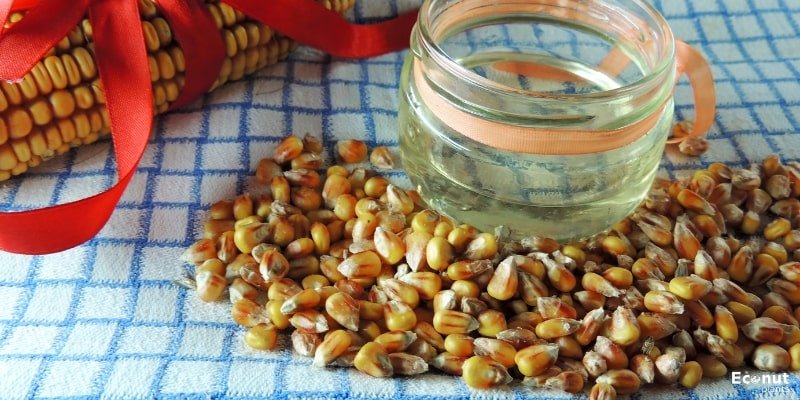
High-oil corn types are intentionally designed to have more oil than regular field corn. The main usage of these types is in the manufacturing of corn oil, popular cooking oil with a wide range of commercial and culinary uses. Selective breeding has been used to create high-oil corn hybrids that maximize oil output while preserving agronomic performance.
13. Strawberry Popcorn
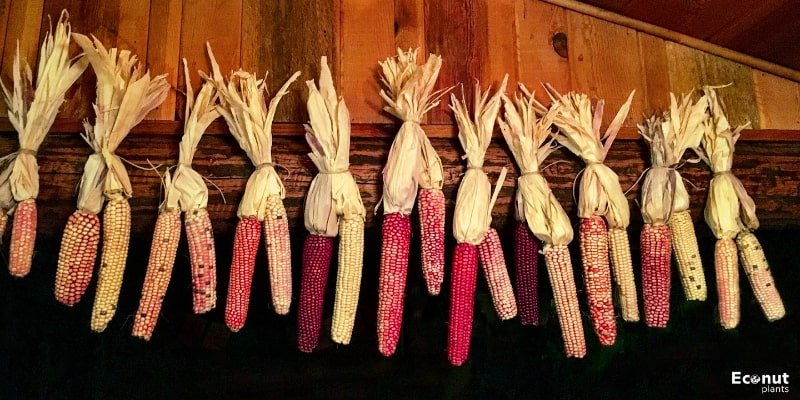
Small ears of ruby-red kernels for popping are produced by the open-pollinated, heirloom Strawberry popcorn cultivar.
Strawberry Popcorn got its name because the 2-3″ long ears looked like big strawberries. At maturity, this variety’s corn stalks grow to an average height of 4-5 feet, bearing 2-4 ears each.
14. Purple Corn
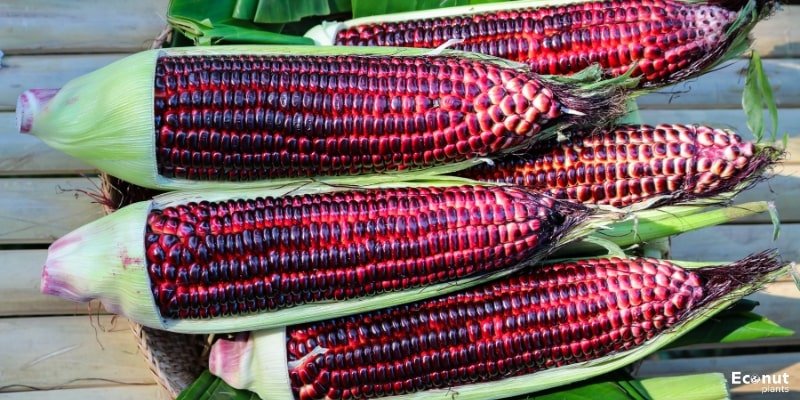
Dark purple in colour, purple corn is indigenous to Peru. Bread, drinks, and desserts are just a few of the foods that may be made with it.
15. Oaxacan Green Dent Corn
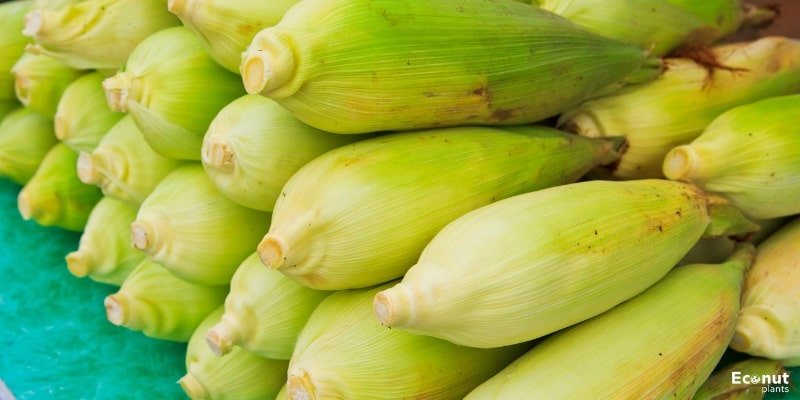
Oaxacan green dent corn is a variety of dent corn that grows in Mexico and is distinguished by its distinct green hue. It is utilized in the preparation of several classic Mexican meals, like pozole, tortillas, and tamales.
16. Glass Gem Corn
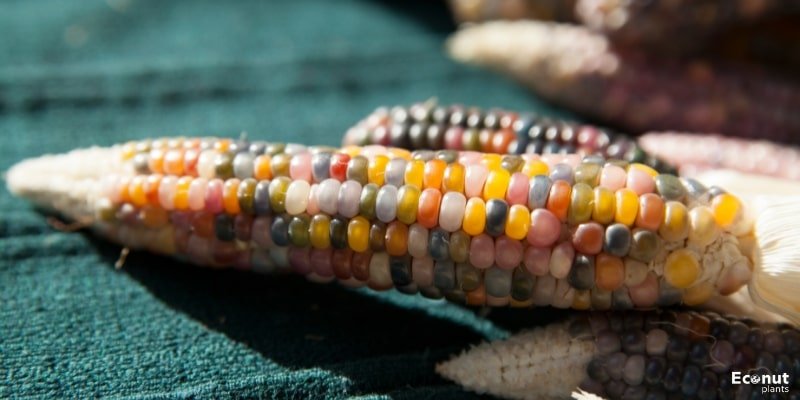
Once native to Oklahoma in the 1980s, glass gem corn is a rare multi-coloured type of maize, often known as flint corn. Some refer to it as “Indian corn,” and it’s regarded as an heirloom variety.
The translucent kernels of corn shine like gems and are coloured in a kaleidoscope of hues, such as baby pink, lilac, merlot, pearl, and Robin’s egg blue.
17. Black Aztec Corn
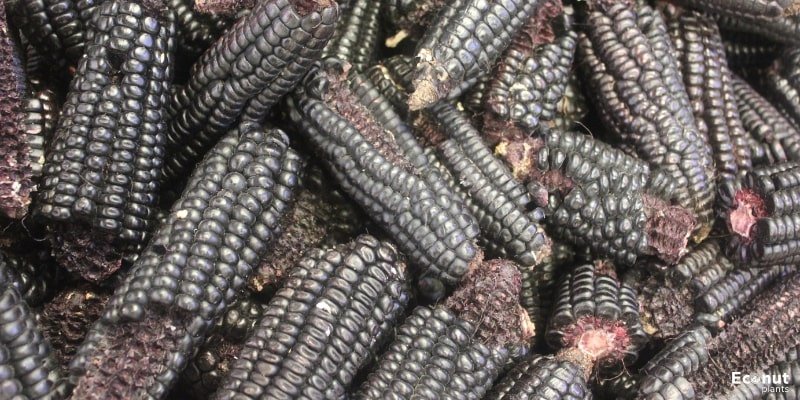
Black or dark purple-coloured flour corn is known as black Aztec corn. It is indigenous to Mexico and is used in many traditional Mexican foods, including tamales, pozole, and tortillas.

